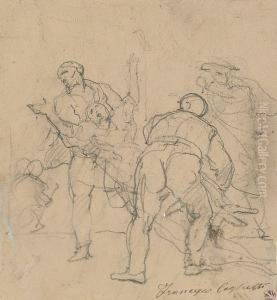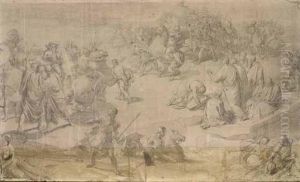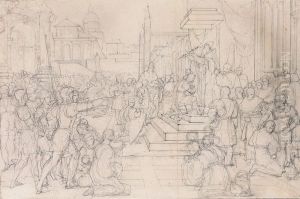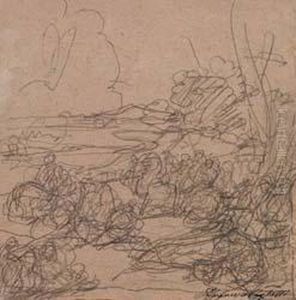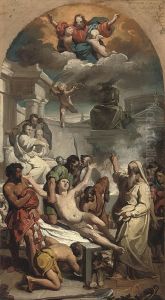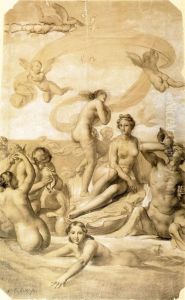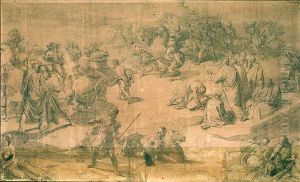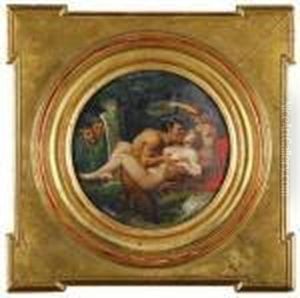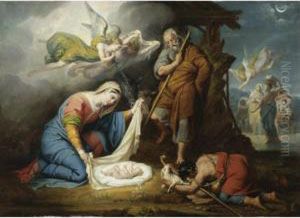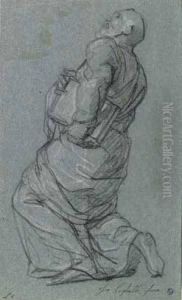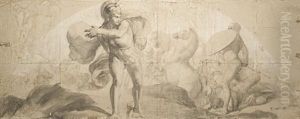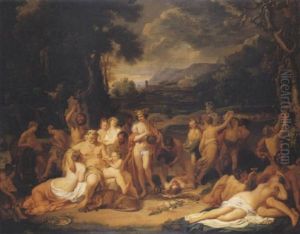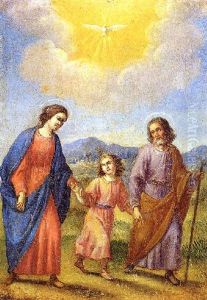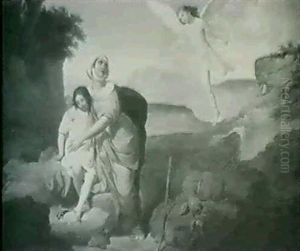Francesco Coghetti Paintings
Francesco Coghetti, born in Bergamo, Italy, in 1804, was an influential painter of the 19th century, known for his works in the Neoclassical and Romantic styles. His early education in art began in his hometown, but his talent soon necessitated further study in more prestigious centers of art. Thus, he moved to Rome, which was then the heart of the artistic Renaissance in Italy, to refine his skills and immerse himself in the rich cultural heritage of the country.
Coghetti's career flourished in Rome, where he became part of a vibrant artistic community. His works were characterized by a meticulous attention to detail, a masterful use of color, and a profound expression of emotion, which garnered him considerable acclaim. He painted a wide range of subjects, including historical scenes, religious images, portraits, and even frescoes, showcasing his versatility and skill in different genres.
In 1833, he was appointed the director of the Accademia Carrara in Bergamo, a position he held until 1840. This role allowed him to influence the next generation of artists, imparting his knowledge and passion for art to his students. Coghetti's commitment to education was a significant part of his legacy, contributing to the development of the Italian art scene during a period of great cultural change.
Throughout his career, Coghetti received numerous commissions from both religious and secular patrons, which allowed him to work across Italy. His art was not only appreciated in his homeland but also gained recognition abroad, contributing to his reputation as one of the leading Italian painters of his time.
Francesco Coghetti's contributions to Italian art were significant, and his works continue to be admired for their beauty and emotional depth. He died in Rome in 1875, leaving behind a legacy that has influenced the course of Italian art history. His works remain a testament to the skill and creativity of 19th-century Italian artists, and his influence can still be seen in the works of later artists who followed in his footsteps.
